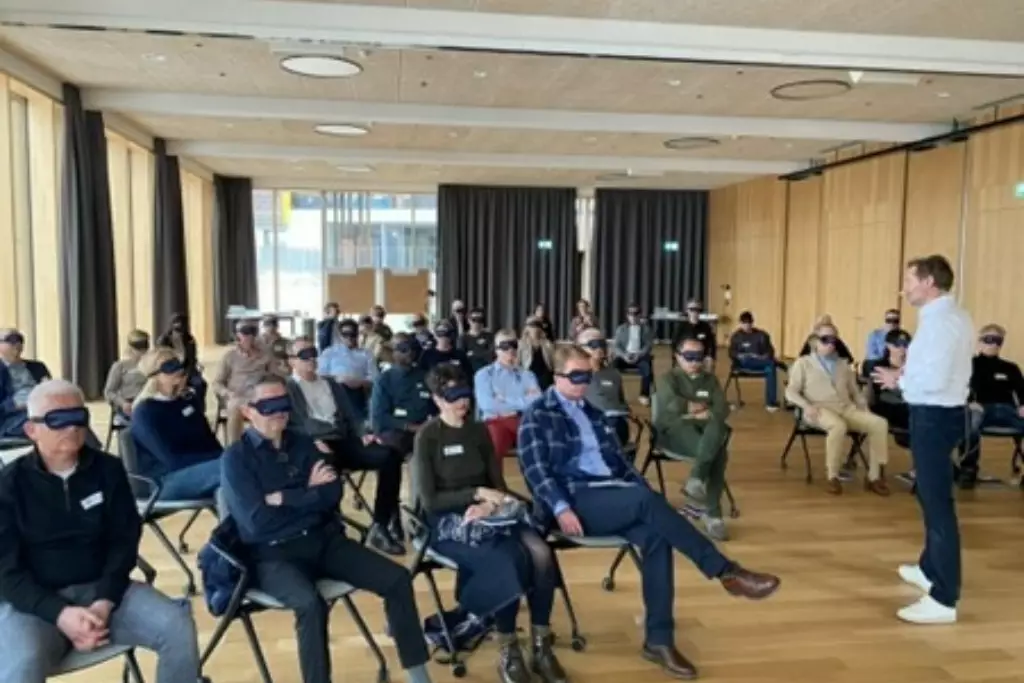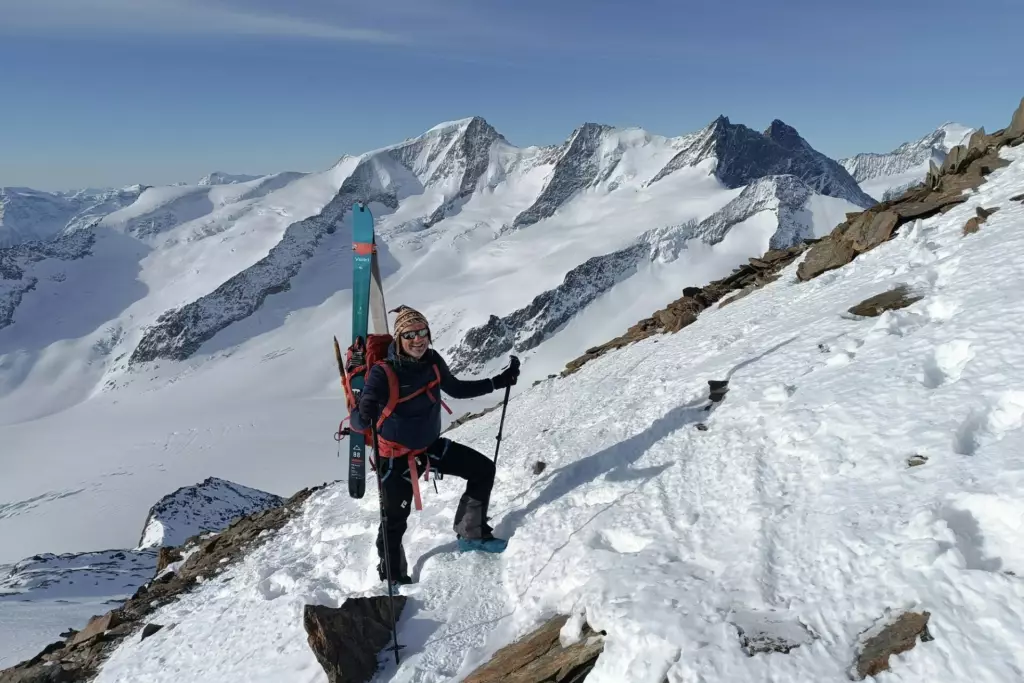Get in touch
3 Leadership reflections while mountaineering with my 82-year old father

- Duration
- 10 min read
- Author
- By Oliver
I recently turned 50, and to mark the occasion my father and I decided to spend a weekend at the foot of the Großglockner Mountain in Austria, in a small Tyrolean town called Kals. One of our favorite pastimes is ski touring (also called ‘skinning’), and for extra safety and excellent company we had our trusted mountain guide Helmut with us.
As I was slowly ascending the mountain on day one, I felt a deep sense of gratitude that I was able to share this time with my father. He is a proud 82 years old and still fit enough to do this. How fun for us! My mind was still abuzz from two high performing team workshops I had just facilitated this week. I asked myself what lessons leaders might learn from my father’s attitude to life? I came up with three lessons that I would love to share with you: generative curiosity, deliberate attention, and lightness.
Generative Curiosity
On Friday evening, I arrived by train from Germany at 7.25pm. Helmut and my father had waited for my arrival before we could leave for Kals. I quickly packed and off we went on a 1 hour 40-minute drive to our destination. Helmut drove and my father was in the passenger seat. I sat in the backseat, still arriving and feeling tired from the week.
The two of them had a lively conversation throughout the whole car ride. What amazed me was that my father asked Helmut a multitude of questions ranging from questions about his family “is your son still working in the same job?”, about the success of some of the local businesses “how is the new hotel in this town doing?”, about Tyrolean geography, “isn’t this the turn off to the mountain we did some years ago?” Any of the questions presented openings for avenues to explore. My father has an innate curiosity about the world. It serves a dual purpose: connecting with the person he is speaking to as well as learning more and thereby expanding the observer of the world he can be.
As an executive and leadership coach, we know about the power of questions. It’s a skill that can be developed and it’s also a mindset to hone. In our work, we call it a ‘learner’ mindset.
Deliberate Attention
Day one, 7am wake-up call, 7.30am breakfast, 8am check materials (backpacks, gloves, avalanche gear), boots on and go. I squeezed myself into the left ski boot and yelped in pain. Four weeks ago, I had injured my ankle playing soccer and the swelling and rigidity was still present. I could barely get into the boot. I felt sorry for myself and stuck. I observed my father who was putting on his boot. His left ankle has been stiff and mostly immobile for more than four decades from a surgery following an accident he had had. There he was sitting next to me whistling and chatting about the weather.
While my father has a good dose of old-school toughness mixed with a high threshold of pain, my takeaway was a different one: he is very good at focusing his attention on things that are mobile, things that can be done, things that are possible. In my case, I could bring my attention to all the mobility I have in the rest of my body which enabled me to get into my boot and focus on other things, e.g. the fantastic scenery awaiting us. In our work with teams and leaders, we call this a ‘player’s mindset.’
This kind of deliberate attention is beautifully brought to life by the story of an old Cherokee Indian chief who was teaching his grandson about life. “A fight is going on inside me,” he told the young boy, “a fight between two wolves. One is evil, full of anger, sorrow, regret, greed, self-pity and false pride. The other is good, full of joy, peace, love, humility, kindness and faith. This same fight is going on inside of you, grandson…and inside of every other person on the face of this earth.” The grandson ponders this for a moment and then asks, “Grandfather, which wolf will win?” The old man smiled and simply said, “The one you feed.”
Lightness
Throughout our weekend together, we had many moments of laughter. My father’s llightness can appear in a range of ways, from a comment of surreal humor to a little joke told appropriate to the situation at hand. His memory bank of jokes is enormous; I sometimes wonder if a special section of his neo cortex houses them all..
Again, the purpose is dual fold: laughing together helps the connective tissue of us humans and with lightness time passes differently.
As Samuel Beckett’s Vladimir exclaims in Waiting for Godot: ”Comme le temps passe quand on s’amuse” (How time passes when we’re having fun).
My invitation to leaders:
Generative Curiosity
- How often do you step into open questions with your closest collaborators?
- Do you ask follow-on questions?
- What questions have you used that work best for you, and in what situation?
Deliberate Attention
- Are you mindful of where you place your attention, what do you ‘feed’?
- Can you be deliberate in doing it with a sense of possibility and movement?
- Where might you sometimes get stuck or collapse into what’s not possible?
- What small move can you make when probing into what is possible?
Lightness
- How present is lightness in your days?
- Are there people in your life who bring this element?
- What else could you do to bring your authentic flavor of lightness to bear?
- In your teams, how would you rate the presence of lightness and if low, what are 1-2 concrete ways to increase it?
I would love to hear from you how you apply curiosity, attention, and lightness in your leadership.
Oliver
Latest Field Notes
More field notes that may interest you.

Go home - going home

Your Leadership Space – Obstacle or Enabler?
